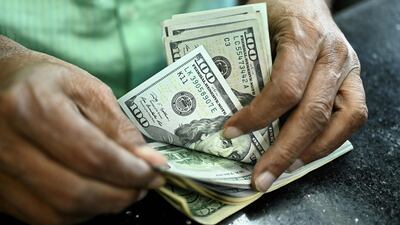The UAE Central Bank issued new guidelines on the risks related to politically exposed persons (PEPs) to help licensed financial institutions (LFIs) combat money laundering and terrorism financing.
LFIs providing services to PEPs must develop risk-based policies to ensure they appropriately identify such persons or related customers before the commencement of a business relationship, the banking regulator said in a statement on Tuesday.
The guidance requires institutions to carry out risk ratings and additional assessments of such persons.
“LFIs must carry out specific mandatory due diligence measures on PEPs and their direct family members or close associates in addition to the standard due diligence required for all customers,” the bank said.
Institutions must demonstrate compliance with the new requirements within one month.
The move is aimed at helping LFIs ensure the effective implementation of their statutory anti-money laundering and combating the financing of terrorism (AML/CFT) obligations related to PEPs, the Central Bank said.
“We are keen to ensure that all LFIs comprehensively understand their role and responsibilities in mitigating relevant AML/CFT risks and safeguarding the UAE financial system from illicit activities,” said Khaled Balama, Governor of the Central Bank.
Transactions involving PEPs may expose LFIs to a “heightened risk” of money laundering, terrorism financing and other illicit finance, the regulator said.
“This guidance provides LFIs with further requirements and measures they must fulfil before and after initiating business relationships with politically exposed persons to stay anti-money laundering compliant," he said.
Under the new guidance, LFIs are also required to conduct on-going monitoring of their business relationships with PEPs.
They are also required to maintain transaction monitoring systems equipped to identify patterns of unusual or suspicious activity and report any behaviour linked to money laundering, financing of terrorism or a criminal offence to the UAE’s Financial Intelligence Unit, the Central Bank said.
All these preventive measures should be integrated into an LFI’s AML/CFT compliance programme and supported with appropriate governance and training, it added.
“We will continue our efforts to issue similar regulatory guidelines, to enhance the efficiency and robustness of our financial system in line with international standards related to anti-money laundering and financing of terrorism,” Mr Balama said.
The latest guidelines come after the Central Bank issued new AML/CFL guidelines on Monday requiring LFIs to develop internal policies, controls and procedures to manage risks linked to payments.
Globally, money laundering activity is projected to more than double to $5.8 billion by 2027 from an estimated $2.8bn in 2022, research company Markets and Markets said in a report last month.
The UAE has announced various measures to fight and prevent money laundering in the country.
The anti-money laundering task force imposed fines of more than Dh41 million ($11.16m) in the first six months of 2022, as it continues to rein in illicit financial activity.
The UAE's AML/CFT committee also said last month that authorities have reached out to the private sector to ensure effective implementation of sanctions.

